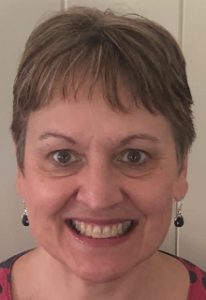Dementia diagnoses are not the end
Published 10:30 am Thursday, April 25, 2019
Did you know that every 65 seconds someone in the United States develops Alzheimer’s and one in three seniors dies with a dementia? As a certified psychiatric clinical nurse specialist with a focus on Alzheimer’s and other dementias, I don’t find it surprising. Dementia is a tsunami, and it is coming.
Alzheimer’s is the most common form of dementia, and according to the Alzheimer’s Association, it is the sixth leading cause of death in the United States. The Alzheimer’s Association 2019 report states that 5.8 million Americans are living with the disease. In the next 30 years that number will to rise 14 million.
Caregivers
There are 16 million family caregivers in the United States who provide care for someone with dementia. Caregivers are at increased risk of illness or death. Those who are diagnosed with this disease and their families feel as though they have nowhere to turn. But there are supports and resources available in Farmville and several important things you can do when caring for someone who is living with Alzheimer’s or dementia.
The first thing is to take time for yourself. Attend the Alzheimer’s Association Caregiver Support group which meets on the first Thursday of every month at The Woodland. It provides a support system and practical information on caregiving and coping. And seek out other local resources for support. If you are unable to physically leave the person you’re caring for, find a quiet minute each day to recharge your batteries.
Early Detection/Diagnosis
Early detection and diagnosis of dementia and Alzheimer’s is critical. Often, issues are not diagnosed until the disease has progressed extensively. Yet treatment may have the greatest impact in the early stages of dementia. The Alzheimer’s Association report states that if we delay the onset of symptoms of dementia by five years, we can decrease the health care costs by 40 percent and decrease the incidence of those diagnosed with dementia.
I find that family members recognize that something is “off” in a loved one for a year or longer, but it can be hard to get a diagnosis in a short doctor office visit. The top early warning signs of Alzheimer’s include memory problems that interrupt daily life, challenges in planning or solving problems, difficulty in completing familiar tasks and confusion with time such as losing track of dates or seasons. If you notice any of these changes in yourself or your loved one, schedule a doctor’s appointment. Don’t be afraid to ask for tests, scans or a referral to a specialist.
Prevention
Some Alzheimer’s and dementia risk factors such as age, family history and genetics, are out of our control. However, factors we can control include lowering blood pressure, blood sugar, cholesterol, diet and exercise. What’s good for the heart is good for the brain. Socializing and maintaining cognitive reserve are also important.
The Future
There is currently no cure for Alzheimer’s and other dementias, but I am passionate about showing people that a diagnosis is not the end. Every day at The Woodland I see individuals living full, active lives in a secure space, including our new memory care unit.
The Alzheimer’s Association is hosting a free education program called “Understanding and Responding to Dementia-Related Behaviors.” It will be held on May 1 from 2-4 p.m. at The Woodland Community Center located at 103 Varner Drive in Farmville. Call 1 (800) 272-3900 to register.
Marion L. Kyner is a psychiatric clinical nurse specialist and dementia practitioner and trainer at The Woodland Inc. She can be reached via email at mkyner@thewoodlandinc.com.



